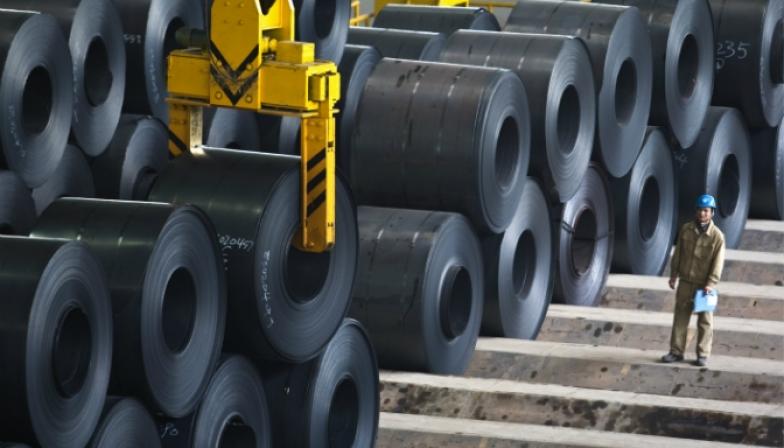China’s steel output is expected to grow 3 percent to 5 percent in 2017 compared with last year, said a trade body official on Saturday, despite the closure of small outdated mills as surging prices prompted larger players to turn out more metal.
The world’s largest steel producer will make about 840 million tonnes of crude steel this year, said Qu Xiuli, vice president at China Iron and Steel Association (CISA). Last year, the country produced 808 million tonnes of steel.
Steel output at member steel firms of the association – each with annual capacity of more than 1 million tonnes – rose 6.8 percent in the first seven months this year, while small steel mills saw a 2 percent drop in production from last year.
That comes after Beijing’s crackdown that shut 120 million tonnes of low-tech steel capacity in the first half of this year and a continuing series of environmental inspections in an effort to curb pollution.
“The Chinese steel sector is upgrading and the industry concentration ratio is rising,” said Qu.
Of the 808 million tonnes of steel produced last year, only about 36 percent was produced by the top 10 largest steel mills in China, and their portion is expected to increase this year.
China has been striving to streamline its heavy industries to reduce debt burdens and produce more high value products.
Export prices for steel products in the first seven months of the year rose 43.3 percent to $686 a tonne compared to the same period last year, according to CISA.
Shanghai benchmark steel rebar prices gained nearly 50 percent this year, hitting a 4-1/2-year peak at 4,194 yuan (£471) a tonne in early September, as the market was boosted by expectations of tight supply due to rigorous capacity cutbacks and the environmental checks.
The price increases have led to booming profits at Chinese steel mills.
“The net profits of Chinese steel firms have raised 390 percent in the first seven months this year to over 70 billion yuan. We expect to see at least 100 billion yuan in profits by the end of this year,” said Qu.



